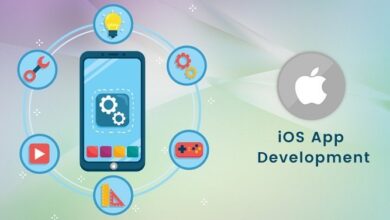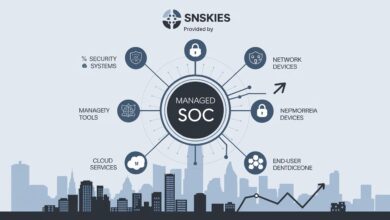The Future of Work: How Data Science Courses Prepare You for Success
Introduction to the Future of Data-Driven Careers
In today’s rapidly evolving job market, few fields offer as much potential for growth and innovation as data science. From enhancing business operations to driving technological advancements, the ability to extract, interpret, and apply insights from data has become essential. Data science is not just a trend; it is the future of work. As more industries turn to data-driven strategies, professionals with data science skills are in high demand.
This article explores how data science courses equip you with the tools, techniques, and mindset to thrive in the future of work, while unlocking a range of career opportunities.
1. Understanding the Shift to a Data-Driven World
In the past decade, we have seen a significant shift toward data-driven decision-making across industries. From finance and healthcare to marketing and manufacturing, data science plays a critical role in transforming how organizations function. This shift is a response to the explosion of data generated through digital activities such as online transactions, social media, mobile devices, and IoT (Internet of Things) devices.
Data-driven organizations outperform their competitors by leveraging insights to make informed decisions. This trend has led to an increased demand for data scientists, analysts, and other professionals capable of extracting value from vast datasets. But this doesn’t stop at technical knowledge—data scientists need to understand how to communicate findings, contribute to strategy, and anticipate future trends.
2. Key Skills You’ll Gain in a Data Science Course
Data science courses are designed to equip students with a blend of technical, analytical, and problem-solving skills. These skills are essential for anyone looking to succeed in today’s job market, where technology and data play a central role. Let’s explore the core skills you will acquire:
a) Programming and Scripting Languages
Programming languages like Python and R are indispensable in data science. These languages enable professionals to manipulate datasets, run algorithms, and build machine learning models. A data science course typically includes hands-on training in these languages, focusing on writing efficient code, automating data analysis tasks, and creating scalable solutions.
b) Data Manipulation and Analysis
One of the core skills a data science course teaches is how to work with raw data. This includes data cleaning, data wrangling, and preprocessing techniques. Professionals learn how to handle large, unstructured datasets and turn them into usable formats. This skill is critical because real-world data is often messy and incomplete, making data manipulation a crucial first step in any analysis.
c) Machine Learning and Predictive Modeling
Machine learning (ML) is at the heart of modern data science. A comprehensive course introduces key ML concepts, including supervised and unsupervised learning, decision trees, neural networks, and clustering techniques. These tools allow data scientists to build predictive models, enabling businesses to forecast trends, identify patterns, and automate decision-making processes.
d) Statistical Analysis
Statistics is the foundation of data science. A thorough understanding of statistical methods is required to make sense of data, perform hypothesis testing, and assess the reliability of results. In a data science course, you will learn how to apply statistical techniques to real-world data, ensuring the results of your analysis are accurate and actionable.
e) Data Visualization
A crucial aspect of data science is the ability to present data findings in a clear and compelling way. Courses often cover tools like Tableau, Power BI, and Matplotlib, which help professionals create charts, graphs, and dashboards that communicate complex data insights to stakeholders.
f) Big Data Technologies
As the volume of data grows exponentially, data scientists must be familiar with big data technologies such as Hadoop, Spark, and cloud computing platforms like AWS and Google Cloud. These tools are vital for processing and analyzing massive datasets that traditional methods cannot handle.
g) Business Acumen and Communication
Beyond technical skills, data scientists need to have strong business acumen and communication skills. It is not enough to generate insights; professionals must be able to translate their findings into actionable strategies that non-technical stakeholders can understand. Data science courses often focus on teaching students how to bridge the gap between technical analysis and business decision-making.
3. Career Opportunities in Data Science
The future of work is data-driven, and the opportunities for professionals with data science skills are vast. Here are a few key career paths that a data science course can prepare you for:
a) Data Scientist
As one of the most sought-after roles, data scientists analyze and interpret complex datasets to help organizations make informed decisions. They use statistical techniques and machine learning to develop predictive models, automate processes, and solve business problems.
b) Data Analyst
Data analysts focus on interpreting data and providing actionable insights to business leaders. Their role involves cleaning and organizing raw data, identifying trends, and generating reports that guide decision-making.
c) Machine Learning Engineer
A machine learning engineer builds algorithms and models that allow machines to learn from data. These professionals are crucial in industries like tech, finance, and healthcare, where automation and predictive analytics are rapidly gaining importance.
d) Business Intelligence Analyst
Business intelligence (BI) analysts work closely with executives and other business leaders to identify opportunities and drive growth through data-driven strategies. They use data to create reports, visualizations, and dashboards that offer insights into business performance.
e) Data Engineer
Data engineers are responsible for designing, building, and maintaining the infrastructure that allows data scientists and analysts to work with large datasets. This includes building data pipelines, databases, and cloud-based solutions.
4. The Growing Demand for Data Science Skills
The demand for data science professionals continues to grow, with many industries actively seeking individuals who can harness data to drive innovation. According to industry reports, the global data science market is expected to reach USD 140.9 billion by 2024, driven by the adoption of AI, big data, and analytics solutions. This growth reflects the increasing need for businesses to stay competitive through data-driven strategies.
As data science becomes more integral to business operations, there is a growing need for skilled professionals who can manage and interpret data. Industries such as finance, healthcare, retail, and technology are particularly keen on hiring data science experts to optimize processes, reduce costs, and improve customer experiences.
5. How Data Science Courses Shape Future Leaders
A data science course doesn’t just teach technical skills; it prepares you to become a leader in the digital age. Data-driven organizations are looking for professionals who can think critically, solve complex problems, and leverage data to make strategic decisions. By equipping yourself with data science knowledge, you are positioning yourself as a key player in the future of work.
Courses often emphasize collaboration, real-world problem-solving, and hands-on experience through capstone projects. These projects allow students to apply their skills to actual business problems, preparing them for the challenges they will face in the workplace.
6. Lifelong Learning and Continuous Development
In the field of data science, learning is a lifelong journey. Technology evolves rapidly, and professionals need to stay updated with the latest tools, trends, and techniques. Many data science courses offer continuous learning resources, including access to advanced modules, industry webinars, and networking events.
To remain competitive in the data-driven world, professionals must actively pursue opportunities to upgrade their skills. This includes exploring emerging technologies like deep learning, AI, and quantum computing, which are expected to play a significant role in the future of data science.
Conclusion:
Investing in a Data Science Training Course in Delhi, Nashik, Noida and other cities in India can transform your career prospects by equipping you with the skills, tools, and knowledge to thrive in a data-driven world. Whether you’re aiming to become a data scientist, analyst, or machine learning engineer, the opportunities in this field are vast and rewarding. From statistical analysis and machine learning to data visualization and big data technologies, a comprehensive data science course can unlock new possibilities and set you on the path to success.
As the demand for data science professionals continues to grow, enrolling in a data science course is not just a strategic career move but also a way to future-proof your skills in an evolving digital landscape. Take the leap, start learning, and position yourself as a leader in the exciting world of data science.




